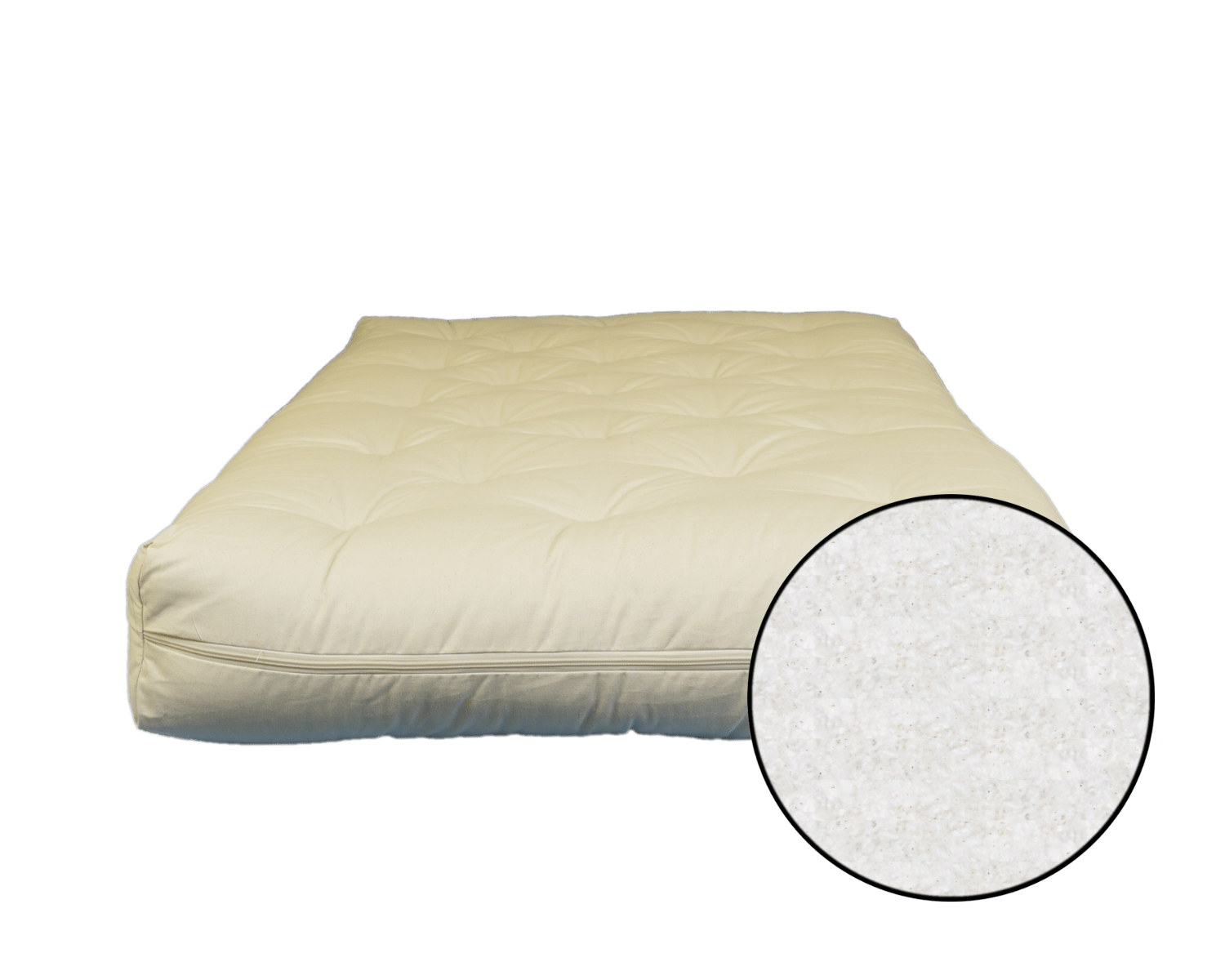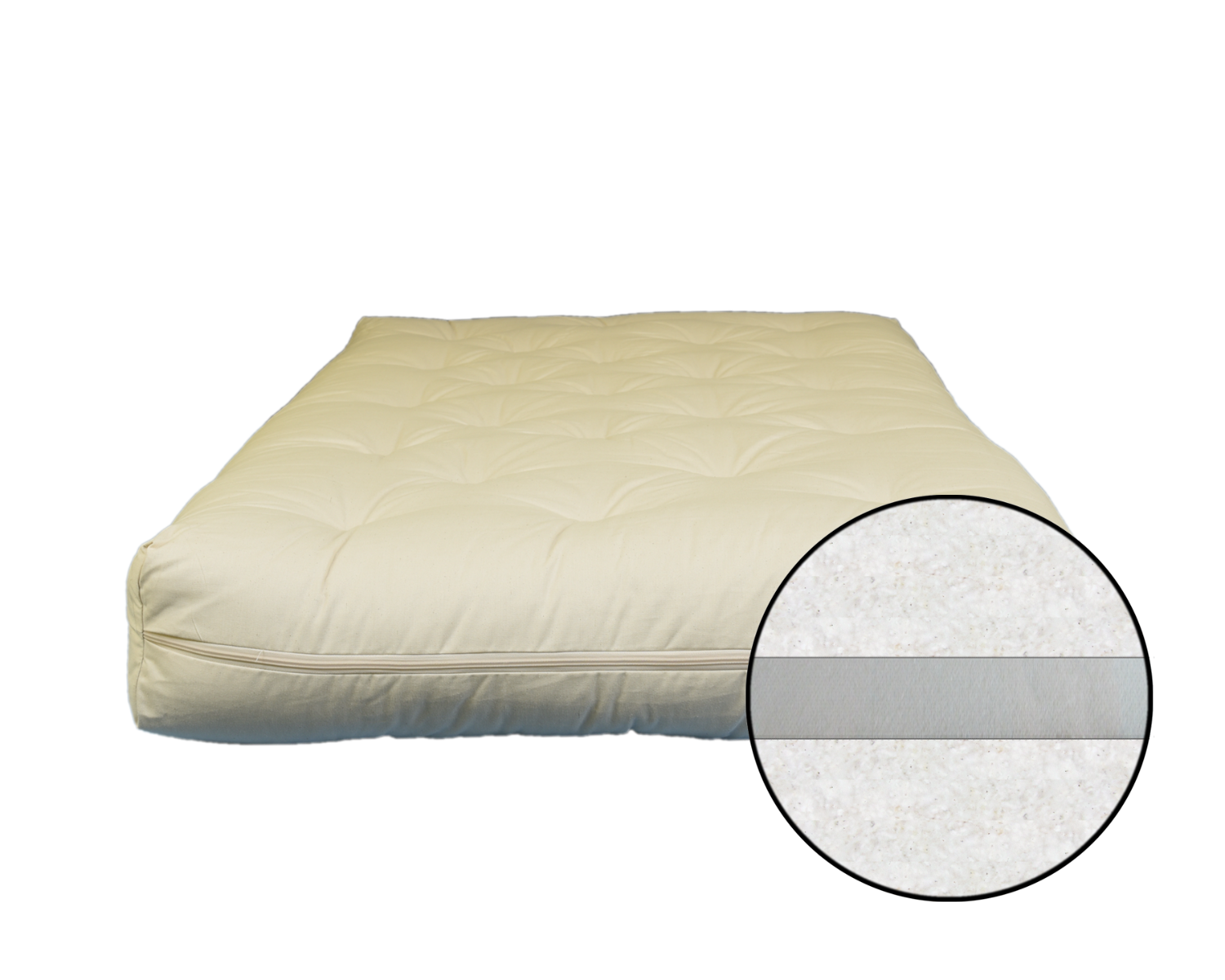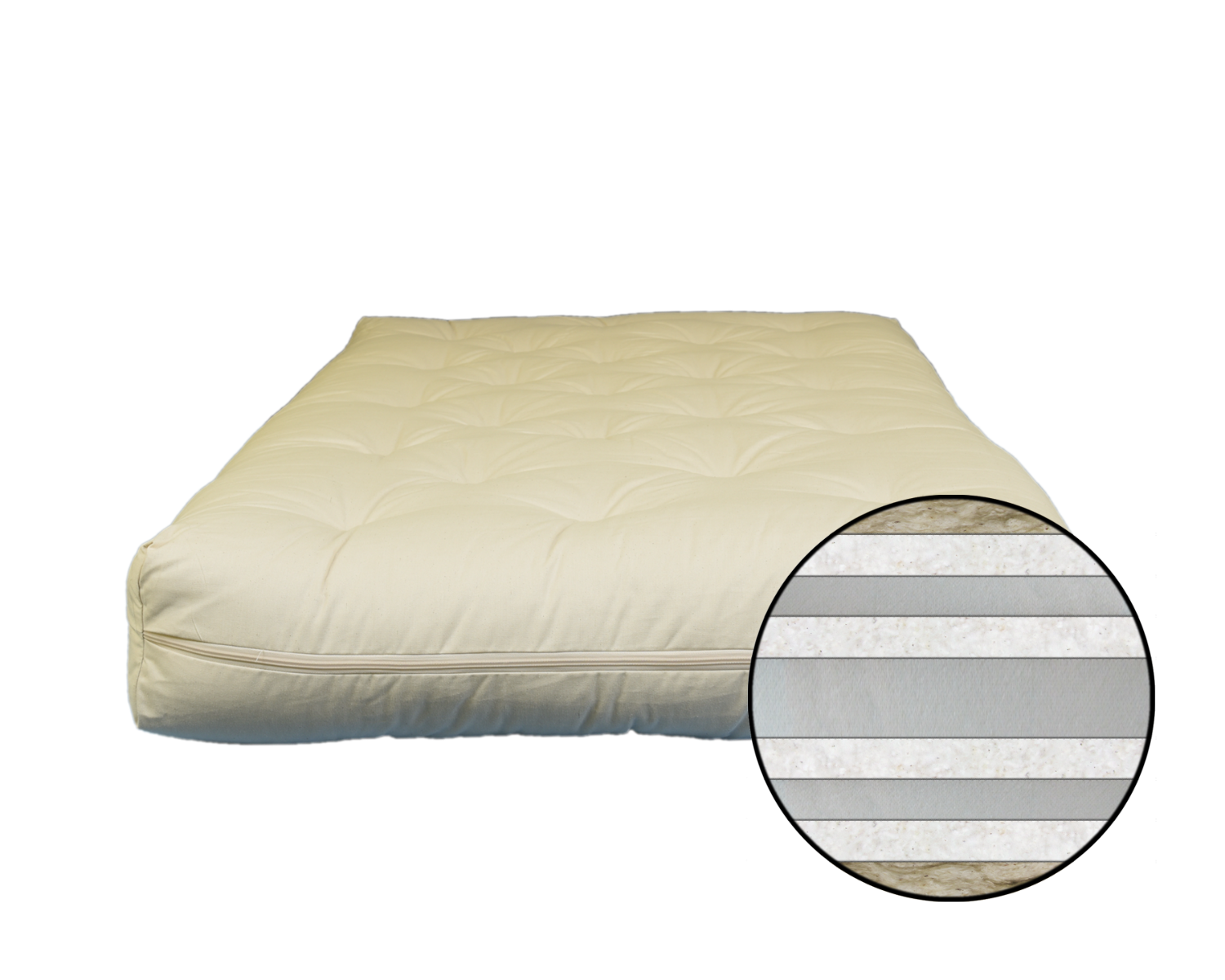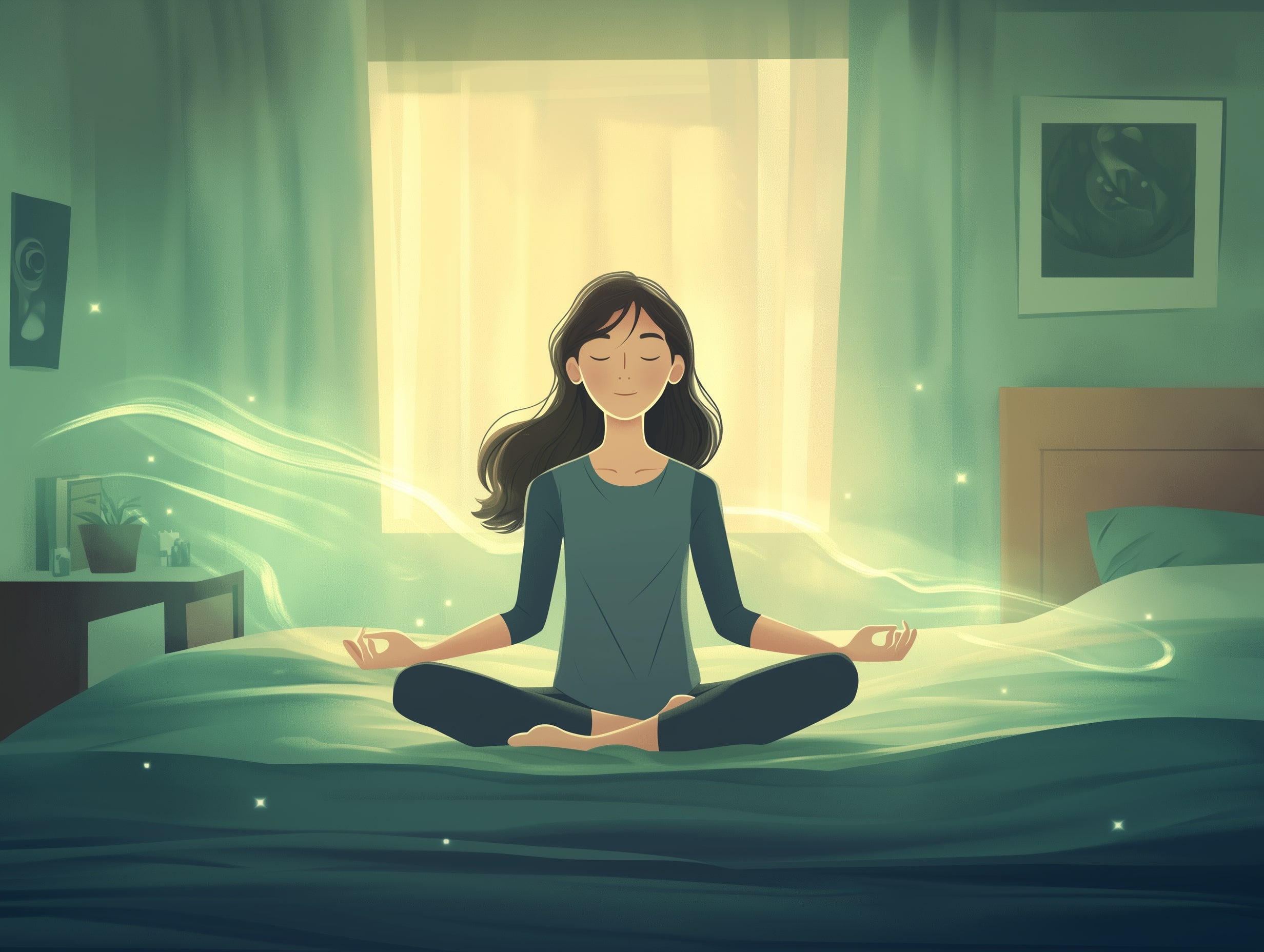Sleep is essential for our brains and bodies. After a day of hard work, one needs 7-8 hours of sleep for the body to heal and repair muscles and give rest to the brain. Not sleeping enough can affect our memory, judgment, and mood.
Many people struggle with sleep anxiety, which can make it hard for them to fall asleep, cause frequent wakeups, or lead to restless nights. This can harm one’s overall well-being, impacting their mood, energy, and thinking ability.
A 2024 survey by the American Psychiatric Association reveals a growing increase in anxiety among U.S. adults. This year, 43% reported higher anxiety levels compared to 37% in 2023 and 32% in 2022. Key concerns include current events (70%), economic worries (77%), the upcoming U.S. election (73%), and gun violence (69%). Studies have found that sleeping an extra 60 to 90 minutes per night could make most Americans happier, healthier, and safer.
What is Sleep Anxiety?
Sleep anxiety is a condition where stress or fear disrupts your ability to fall asleep or stay asleep. It often stems from worrying about not getting enough rest, which creates a cycle of sleeplessness and heightened anxiety.
This can lead to feelings of frustration, fatigue, and an overall decline in mental and physical well-being. Understanding the root causes and implementing calming bedtime routines can help break this cycle and improve sleep quality.
What Causes Sleep Anxiety?
Sleep anxiety can arise from various psychological factors:
- Worry and Rumination: Have you been overthinking about negative or stressful situations? It can disturb your sleep.
- Anxiety Disorders: People with conditions such as generalized anxiety disorder, panic disorder, or post-traumatic stress disorder (PTSD) don’t get sound sleep. It impacts their sleep quality.
- Depression: Symptoms of depression, including sadness, hopelessness, and fatigue, can lead to sleep issues.
- Stress and Overwhelm: Ongoing stress can make it hard to fall asleep and stay asleep.
- 5. Fear of Insomnia: This fear can create a cycle where the worry about not sleeping well increases anxiety and worsens sleep quality.
- Trauma and Past Experiences: Any traumatic events that have been left untreated can cause hypervigilance and make it difficult to relax, hindering the ability to fall asleep.
- Substance Abuse: Those who consume high levels of alcohol or drugs don’t get proper sleep due to palpitations and anxiety.
- Lifestyle Factors: Poor sleep habits, irregular sleep patterns, and high consumption of caffeine or nicotine can add to sleep anxiety.
It’s essential to recognize that these factors can interact and worsen the problem. If you’re facing sleep anxiety, it’s advisable to seek help from a mental health professional for a thorough evaluation and tailored treatment plan.
How Do You Know You Have Sleep Anxiety?
Let’s talk about the general symptoms first.
- Are you tossing and turning throughout the night trying to sleep?
- Do you wake up multiple times during the night?
- Are you feeling tired and sluggish during the day?
- Have you been facing difficulty in concentrating for quite some time and losing your temper, or are feeling irritable without any reason?
Symptoms Encountered by Men and Women in Sleep Anxiety
| Age Group |
Men |
Women |
| Young Adults (18-25) |
|
|
| Adults (26-50) |
|
|
| Older Adults (50+) |
|
|
Tips to Deal with Sleep Anxiety
Overcoming sleep anxiety starts with simple lifestyle changes. From setting a consistent bedtime routine to managing stress and creating a calming sleep environment, these tips can help you regain restful nights.
1. Set up a Consistent Sleep Schedule:
Fix Your Regular Bedtime: Aim to go to bed and wake up at the same time each day. Weekends are no exception.
Set up a Bedtime Routine: Include mind-calming activities like reading, taking a warm bath, or practicing meditation before going to bed.
Change Your Sleep Environment: Ensure your bedroom is dark, warm, quiet, and cool. Sleep in a comfortable mattress, pillows, and bedding. For better results, you can opt for eco-friendly mattresses.
2. Relax Your Mind:
Practice Meditation: Focus on your breathing and present moment to reduce anxiety and stress. Mediate at least for 15 minutes to soothe your mind right before sleeping.
Try Progressive Muscle Relaxation: Tense and release different muscle groups for a relaxing effect.
Do Light Workout: Block 30 minutes every day in your calendar for gentle physical exercise. It can improve your sleep quality. Be careful not to engage in intense workouts right before going to bed.
3. Watch Your Diet and Lifestyle:
Limit Stimulants: Control your caffeine and nicotine intake, especially in the afternoon and evening. It can also improve your digestive health promoting better sleep.
Eat Less at Night: Avoid heavy meals close to bedtime, as they can disrupt sleep. Finish your dinner by 7 PM.
Stay Hydrated Always: Drink plenty of water throughout the day, at least 3-4 litres, but limit fluid intake before bed.
Manage Stress: Practice stress-management activities like yoga, deep breathing, or spending time in greenery, or taking a small walk in between your work during lunch hours or evening breaks.
4. Seek Professional Help:
Consult a Doctor: If you’re experiencing persistent sleep anxiety, it’s crucial to seek professional help. A therapist or counselor can provide guidance and techniques to better manage your symptoms and improve your sleep quality.
Consider Therapy: In severe cases, cognitive-behavioral therapy (CBT) can support in managing sleep anxiety, but you should only go for it if advised by your therapist.
Additional Tips for Better Sleep:
- Avoid Screen Time: Keep away your mobile, or tablet before bed as these can affect your sleep quality.
- Create a Proper Sleep Ambience: Set up a relaxing sleep environment with tranquil colors, gentle lighting, and soothing scents.
- Practice Good Sleep Hygiene: Make sure your mattress and pillows are comfortable, and keep your bedroom clean and clutter-free.
- Challenge Negative Thoughts: Think only about positive things like happy memories, travel plans etc. It can relax your mind.
- Limit Alcohol and Drugs: Put a stop to regular or frequent alcohol consumption and drug usage.
You can read our blog 7 Science-Backed Tips to Get More Deep Sleep
Remember, improving sleep quality takes time, effort, and consistency. Making small changes in your lifestyle can help you overcome sleep anxiety and enjoy restful nights.
Conclusion: Take Charge of Your Sleep for a Healthier Life
Improving your sleep quality starts with understanding and addressing the factors behind sleep anxiety. By making small but consistent changes in your daily routine—like maintaining a fixed sleep schedule, practicing relaxation techniques, and creating a calming bedtime environment—you can reclaim peaceful nights. If challenges persist, don’t hesitate to seek professional help. Remember, restful sleep isn’t just a luxury; it’s essential for a healthier, happier life. Take the first step today, and watch the positive changes unfold!








